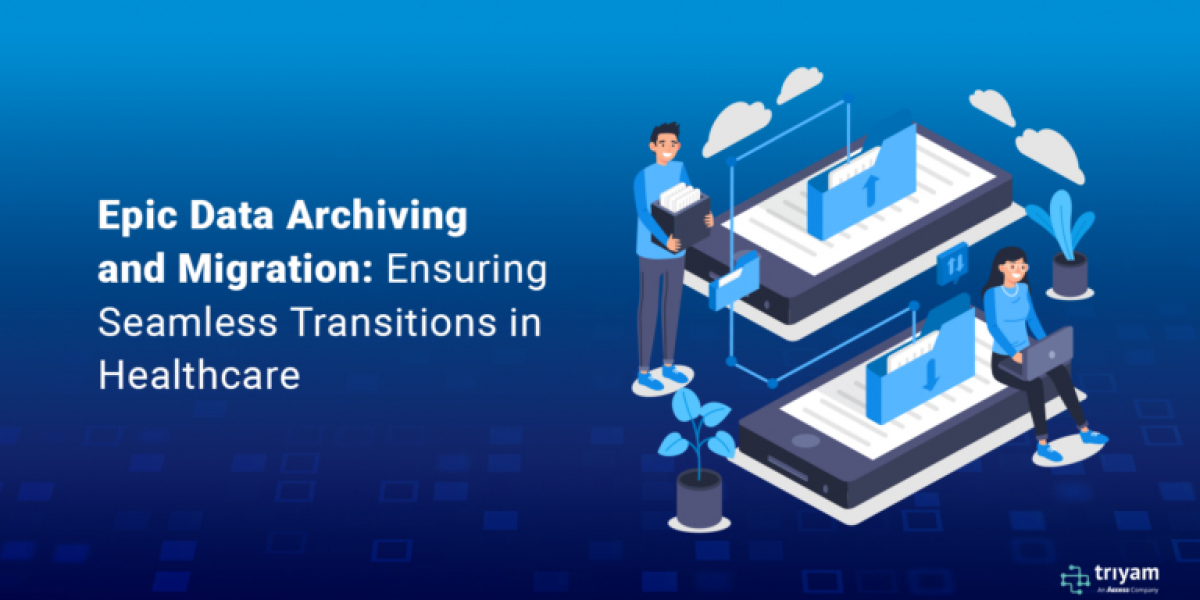Triyam Healthcare Data Archiving Solutions Epic data for diverse healthcare institutions, managing around 13 million patient records with precision and expertise.
Triyam proudly integrates with Epic, offering Healthcare Data Archiving Solutions and archival solutions. Our platform, Fovea®, available in Connection Hub on Epic Showroom, has proven successful in numerous Epic implementations. With Single Sign-On (SSO) through Epic’s Hyperspace or upcoming Hyperdrive browsers, Epic users gain full, immediate access to secure and compliant records.
Things to Know About Epic:
- Epic Systems Corporation is the largest EHR vendor, covering nearly 38% of hospital installations.
- With over 40 years of industry reputation and seamless integration capabilities, Epic maintains a significant edge in the EHR industry.
- Epic has consistently ranked as the top software suite by KLAS Research every year since 2010 and is the fastest-growing EHR among hospitals.
- Definitive Healthcare reports that Epic and Oracle Cerner together hold over half of the inpatient EHR market share in the U.S.
As Epic’s popularity grows, so does the demand for data archiving. Transitioning to Epic requires addressing legacy data. Implementing a comprehensive data strategy and archiving plan is crucial to ensure that patient, business, and employee records remain accessible, secure, and compliant.
Why Triyam?
Are you an Epic user looking for a trusted solution to manage historical records, or planning to transition to Epic and need a partner for data migration and archiving? Whether you’re migrating Healthcare Data Archiving Solutions to Epic or switching EHR software, a skilled team with the right expertise is vital.
Triyam is an experienced vendor listed in the Epic App Market. Our team of specialized developers is well-equipped to handle Epic data migration, tailoring our services to meet your specific needs. Our data archival platform, Fovea, enables the integration of clinically relevant legacy patient and financial data into Epic from various heritage systems. Our approach involves:
- Archiving clinical and financial records
- Decommissioning various applications and systems
- Converting large amounts of data
Choose Triyam for a seamless and secure Epic data archiving and migration experience.
Benefits of Post-Migration to Epic Workflow for End Users
Transitioning to Epic Systems can bring significant improvements in healthcare workflows and processes. Post-migration, end users, including healthcare providers, administrative staff, and IT professionals, can experience various benefits that enhance efficiency, accuracy, and overall user satisfaction.
1. Enhanced User Experience:
Intuitive Interface: Epic’s user-friendly interface is designed to simplify navigation, making it easier for end users to access patient records, enter data, and perform their tasks efficiently.
Streamlined Workflows: The system’s intuitive design reduces the learning curve, allowing users to adapt quickly and perform their duties with greater ease.
2. Improved Data Accessibility and Integration:
Unified Patient Records: Epic consolidates patient information into a single, comprehensive record, ensuring that users have access to complete and accurate patient data at all times.
Interoperability: The system supports interoperability with other healthcare applications and systems, facilitating seamless data exchange and collaboration across different departments and facilities.
3. Increased Efficiency and Productivity:
Automated Processes: Epic automates routine tasks such as appointment scheduling, medication orders, and billing, freeing up time for healthcare providers to focus on patient care.
Real-Time Data Updates: Users can access real-time patient data, ensuring that they always have the most current information available for decision-making.
4. Enhanced Clinical Decision Support:
Decision Support Tools: Epic includes built-in clinical decision support tools that provide evidence-based recommendations, alerts, and reminders, helping clinicians make informed decisions.
Reduced Errors: Automated checks and alerts help reduce medication errors, duplicate testing, and other potential issues, enhancing patient safety.
5. Better Patient Care Coordination:
Comprehensive Care Plans: Epic enables the creation and sharing of detailed care plans, ensuring that all members of the care team are on the same page and can coordinate effectively.
Improved Communication: Integrated messaging and collaboration tools facilitate better communication among care team members, leading to more coordinated and efficient care delivery.
6. Enhanced Reporting and Analytics:
Advanced Reporting Capabilities: Epic’s robust reporting tools allow users to generate detailed reports on various aspects of patient care, operational efficiency, and financial performance.
Data-Driven Insights: Analytics tools provide valuable insights into patient outcomes, resource utilization, and other key metrics, supporting continuous improvement initiatives.
7. Compliance and Security:
Regulatory Compliance: Epic helps organizations comply with healthcare regulations such as HIPAA, ensuring that patient data is managed and protected according to industry standards.
Data Security: The system includes advanced security features to protect patient information from unauthorized access and breaches.
8. Improved Patient Engagement:
Patient Portal: Epic’s patient portal empowers patients to access their health records, schedule appointments, communicate with providers, and manage their health more proactively.
Enhanced Patient Communication: Providers can use the system to send educational materials, reminders, and other important information directly to patients, improving engagement and satisfaction.
Epic Data Migration Process by Triyam
Data Elements Selection
Here are some considerations to ponder when identifying which data elements to migrate to Epic:
- Vital Patient Identifiers: Essential demographic details such as name, address, and date of birth typically form the cornerstone of any conversion process.
- Structured, Discrete Clinical Data: In addition to demographics, structured clinical data plays a crucial role in conversion. This includes information organized in a standardized format, facilitating efficient data transfer and analysis.
- Continuity of Care Documents (CCDs): CCDs offer a comprehensive solution by encompassing both summary data and discrete elements. They enable the generation of historical PDFs for a longitudinal perspective of a patient’s chart. Moreover, CCDs contain all requisite discrete data necessary for most clinical conversions, ensuring seamless integration into the Epic system.
Data Quality
Legacy systems often rely more heavily on unstructured data, leading to heightened variability and increased data quality concerns. Transitioning to a new EHR presents an opportunity for a fresh start, allowing you to be discerning about which data is converted to avoid the pitfalls of the “bad data in, bad data out” paradigm.
Data Mapping
Organizations often underestimate the importance of data mapping, yet it is essential for successful discrete data conversion and vital for adhering to your project timeline. For instance, certain items may lack coding or may not align with the required coding system, necessitating extensive communication, validation, and approval processes.
Data Grouping
Consider the requirements for identifying patients or groups from a legacy standpoint early in your planning process. If you aim to determine the affiliation of patients with specific practices in your network, it’s essential to establish and create meaningful Practice Identifiers. These identifiers can subsequently be utilized during the conversion process from legacy systems for different conversion data sets. If you intend to utilize the legacy practice-level OID, having intricate or inconsistent rules can hinder your capability for certain practice-level reporting, export utilities, or straightforward conversion tasks.
Archiving
Fovea EHR Archive can be launched directly from Epic using SMART on FHIR to access a patient’s legacy data without re-authenticating into Fovea. This provides an easy workflow to access historical data from current systems via integration with Epic users.









